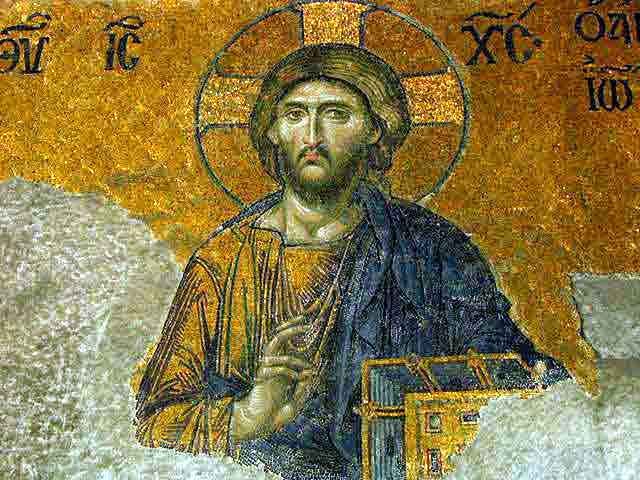Should Christians pray to Jesus?
Well of course, we should, because everyone does it! Catholics, Anglicans, Baptists, Methodists, and Pentecostals. Maybe the only thing we do agree on is praying to Jesus.
But then again, the overriding pattern of prayer in the New Testament is directed to God the Father and not towards Jesus!
Jesus prayed to God the Father all the time, even calling him Abba, a prayer that Christians imitated (Mk 14:36; Rom 8:15; Gal 4:6).
Jesus taught his disciples how to pray the Lord’s prayer to “Our Father” (Mt 6:9-11/Lk 11:2-4), to ask for things in his “name” (Jn 14:13-14; 15:16; 16:23-26).
Jesus never instructed his disciples to pray to him.
Expectantly then, most praises, petitions, and prayers in the New Testament are addressed to God the Father and are given through Jesus.
Look at Paul’s prayer in Ephesians: “I keep asking that the God of our Lord Jesus Christ, the glorious Father, may give you the Spirit of wisdom and revelation, so that you may know him better (Eph 1:17).
At the end of Romans, Paul offers praise “to the only wise God be glory forever through Jesus Christ! Amen” (Rom 16:27).
Then there are thanksgiving prayers too: “And whatever you do, whether in word or deed, do it all in the name of the Lord Jesus, giving thanks to God the Father through him” (Col 3:17).
The author of Hebrews says: “Through Jesus, therefore, let us continually offer to God a sacrifice of praise—the fruit of lips that openly profess his name” (Hebrews 13:15).
Also, in the doxology at the end of Jude, we read: “To the only God our Savior be glory, majesty, power and authority, through Jesus Christ our Lord, before all ages, now and forevermore! Amen” (Jude 25).
There are also exhortations to “pray in the Spirit” (Eph 6:18) and “praying in the Holy Spirit” (Jude 20).
So maybe we are meant to pray to God the Father through Jesus in the Spirit! That is the dominant pattern and therefore normal for us who pray.
However, there is good precedent for praying directly to Jesus in the New Testament!
While they were stoning him, Stephen prayed, “Lord Jesus, receive my spirit” (Acts 7:59).
There is the Maranatha prayer, “Our Lord, come!” (1 Cor 16:22, Rev 22:20; Did. 10:6), see my video on that prayer.
Paul told the Corinthians: “in order to keep me from becoming conceited, I was given a thorn in my flesh, a messenger of Satan, to torment me. Three times I pleaded with the Lord to take it away from me. But he said to me, ‘My grace is sufficient for you, for my power is made perfect in weakness.’ Therefore, I will boast all the more gladly about my weaknesses, so that Christ’s power may rest on me” (2 Cor 12:7-9).
There are some passages that might be ambiguous, but I think do address prayer to Jesus, such as in 1 Thessalonians:
“Now may our God and Father himself and our Lord Jesus clear the way for us to come to you. May the Lord make your love increase and overflow for each other and for everyone else, just as ours does for you. May he strengthen your hearts so that you will be blameless and holy in the presence of our God and Father when our Lord Jesus comes with all his holy ones” (1 Thess 3:11-13).
There are also a lot of people in the New Testament calling on or invoking the name of Jesus.
In the church of the early second century, Ignatius of Antioch, writing to the Ephesians, takes it as normal that churches will pray to Jesus. He wrote: “If Jesus Christ, in response to your prayer, should reckon me worthy, and if it is his will, in a second letter which I intend to write to you I will further explain to you the subject about which I have begun to speak” (Eph 20.1).
Then there is the famous Jesus prayer used in ancient liturgies: “Lord Jesus Christ, Son of God, have mercy on me, a sinner,” taken from the plea of Bartimaeus in the Gospels (Mk 10:47).
So, when it comes to prayers to Jesus, it is permissible as there is biblical precedent and ample elaboration in the early traditions of the ancient church.
But above all our prayers should be Trinitarian: Not Unitarian, not Jesus-only, not without the Holy Spirit’s unction and energy. We pray to the God who is Father, Son, and Holy Spirit.
So, yes, as Jesus taught our prayers are foremost directed to the Father in the name of Jesus, yet sometimes we can freely pray to the Lord Jesus when we lean on the Son’s mercy and call on his name, it’s good, it’s fine, it’s great to do that.
But can we pray to the Holy Spirit? There is no biblical example for that and it is a bit disputed. To answer to that, you’ll have to wait until the next post/video to find out!














Share this post